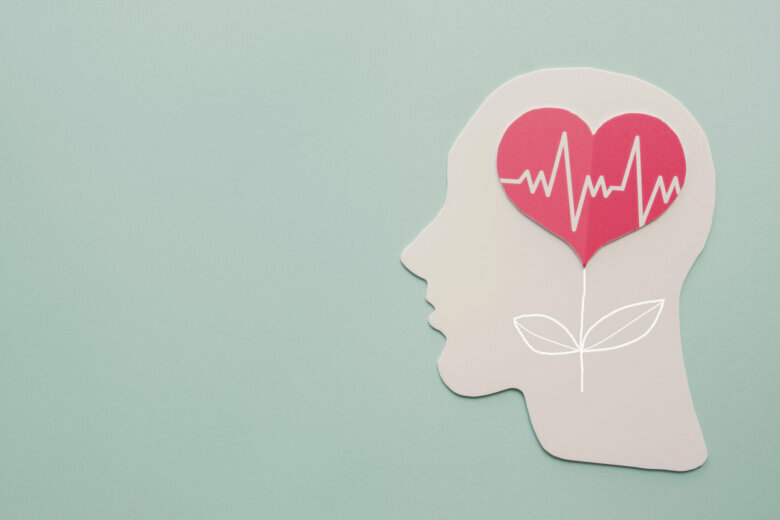This article was republished with permission from WTOP’s news partners at Maryland Matters. Sign up for Maryland Matters’ free email subscription today.

This content was republished with permission from WTOP’s news partners at Maryland Matters. Sign up for Maryland Matters’ free email subscription today.
Following contentious debate during the 2021 legislative session, Gov. Lawrence J. Hogan Jr. (R) has allowed a bill to let minors as young as 12-years-old to seek mental and emotional health care without their parent or guardians’ consent to become law.
“There are so many young people who have struggled with depression, who’ve had tremendous isolation, and they need help,” said Sen. Malcolm L. Augustine (D-Prince George’s), the bill’s sponsor. “That’s what this was always about: with guardrails, providing an opportunity [for adolescents] to have access to care, and I’m just really pleased that that’s going to happen.”
The legislation takes effect on Oct. 1.
Augustine’s bill establishes that minors aged 12 to 16 can consent to mental and emotional health care consultations and be diagnosed and treated without permission from their parents if a health care provider determines that they are mature and capable enough to give informed consent.
The legislation does not allow minors to refuse mental health treatment that their parents have authorized.
The bill passed out of the Maryland Senate in 2020 but didn’t make it through the house of delegates because of time restraints related to the pandemic.
During the 2021 session, it passed both chambers largely along party lines before hitting the governor’s desk.
Its passage was controversial, with Republicans in both the House and Senate staunchly against the age expansion.
But, in a surprising departure from his party and unfavorable written testimony from several psychiatric organizations, including the Maryland Board of Nursing, the Maryland Board of Examiners of Psychologists and the Maryland Psychological Association, Hogan allowed the bill to become law without his signature.
“On the whole, the legislation provided real benefits for children in abusive family situations, and that outweighed the issues raised by advocates for a veto,” said Hogan spokesman Michael Ricci.
Maryland is not the first state to allow minors to consent to outpatient therapy. A 2015 report from the National Center for Biotechnology Information, listed California, Georgia, Illinois and West Virginia as states with similar laws.
A political divide
A chief concern of Republican opponents to the bill in the General Assembly was the notion that parents will be uninformed about their child’s care and what they may be going through.
During a floor debate, Sen. Justin D. Ready (R-Carroll) argued that there may be “unintended consequences” that result from preteens who feel that their parents don’t understand them seeking mental health care if their parents aren’t given the opportunity to work through a difficult time with them.
But, under the newly enacted legislation, health care providers maintain the ability to inform parents of their child’s care plan regardless of whether or not they give their consent. Additionally, youths under 16 can’t be prescribed psychiatric medication without parental permission.
Concerns were also raised about whether 12-year-olds have the cognitive ability to provide informed consent.
Advocates, however, said there are already a handful of services that adolescents can access without parental consent, including emergency medical care; treatment for alcohol or substance abuse, sexually transmitted disease, pregnancy, contraception; and physical examinations to treat injuries and gather evidence relating to sexual assault.
Augustine said that parental involvement “is optimal” but situations arise where it isn’t an option for some kids whose families or cultures may stigmatize mental health disorders. That is why health care professionals can withhold treatment information if they feel it would put the youth in danger or deter them from seeking care, Augustine said.
When the bill reached the House Health and Government Operations Committee, Del. Susan W. Krebs (R-Carroll) took issue with how a child under 16 would physically be able to attend a counseling session because of transportation issues.
“I just don’t see the situation for this. It’s really problematic,” Krebs said, suggesting that she and other lawmakers “must be living in two different worlds.”
“In many ways, we do live in two different worlds,” Del. Ariana B. Kelly (D-Montgomery) told Krebs.
Kelly shared her own struggle growing up in a household that suffered from multigenerational abuse, and said being able to participate in an after school program with a social worker changed her life.
“There are some kids that just have a harder time than others and don’t have parents that can provide the type of support that they need,” Kelly said.
Intervening in adverse experiences
According to Behavioral Health Systems Baltimore, 42% of adults in the city of Baltimore have experienced at least three Adverse Childhood Experiences (ACEs), which are potentially traumatic episodes that people experience as minors that lead to a buildup of toxic stress.
Statewide, 24% of adults have reported experiencing three or more ACEs.
The study of ACEs is relatively new and is based on a public health study performed during the 1990s that surveyed approximately 10,000 adults in Southern California about their childhood in relation to their health status and behavioral patterns as adults.
Study participants were questioned about past abuse, neglect, parental separation, domestic violence and family histories of substance abuse, mental illness and incarceration. Each experience added one point on the ACEs questionnaire.
The study found that more than 50% of participants reported experiencing one ACE, and nearly a quarter reported two or more.
When compared to participants who had reported no ACEs, those who had an ACE questionnaire score of four or more were found to be four to 12 times more likely to suffer from alcoholism, substance abuse and depression; two to four times more likely to smoke and participate in risky sexual behavior; and 1.4 to 1.6 times more likely to be physically inactive or obese.
Matila Jones is the assistant director of community engagement services for The Family Tree, a Baltimore-based nonprofit focused on the prevention of child abuse and neglect.
Jones said the body isn’t meant to endure cortisol hormonal stress for extended periods. If children grow up constantly facing adverse experiences, their bodies are hypervigilant for any adversity lurking around the corner.
“When that happens, the body is constantly under a stress response, and that stress response can be damaging to growing and developing brain and body architecture,” Jones said.
But Jones said that doesn’t mean that every child who goes through adversity will have negative outcomes later.
“Just because you experienced trauma or have had adversity in your life as an individual, that doesn’t necessarily mean that you’re going to end up experiencing negative health and social outcomes and that’s not what the ACE study is saying,” she said.
Anyone, regardless of race or socioeconomic status, can experience ACEs but, according to the Centers for Disease Control and Prevention, they are more prevalent among women and minorities.
Community members, like teachers and pediatricians, who kids interact with regularly can act as screeners to ensure children are physically and cognitively developing on schedule, which can help stop some ACEs in their tracks, Jones said.
Del. Heather Bagnall (D-Anne Arundel), the House sponsor of the bill to expand children’s mental health care called the legislation “one piece of solving a much larger issue of access for adolescent care — and for preventive care.”
She lauded other legislative efforts, including the expansion of social services to reduce the adverse impact of ACEs.
A new approach
Some pediatric practices have begun to integrate mental health care into their services, like Klebanow and Associates in Howard County.
Dr. Jessica Winkles, a licensed child psychologist, helped the practice stand up its Behavioral Health Consultation Service program in 2016.
“Truly integrated care really does involve [a] full merging of mental health and primary care,” she said.
At the practice, a behavioral health provider works alongside the medical doctors, sharing records and other resources, Winkles said.
“It’s a really great way to provide improved access of care,” she said.
Typically, when a physician provides an outside referral, around 17% of those will be followed through, while programs like this see a care rate of about 95%, Winkles said.
“Within pediatrics, more often than not, concerns are coming up in visits relating to behavioral health,” said Winkles.
If a behavioral health issue is identified, pediatricians will do what she described as a “warm handoff” to her or the practice’s other psychologist to address the underlying problem, which often allows for early intervention.
“Patients really appreciate the ease” of having someone there, Winkles said.
Winkles did not have a position on the newly enacted law, but acknowledged that there are times where she witnesses clear discomfort on the part of minors when it comes to sharing mental health issues in front of their parents.
“Yes, it does happen, I certainly observe that … starting most often in middle school” and going into high school and young adulthood, she said.
Winkles said that it can be hard for a parent to identify their child’s internal experiences, but she thinks it’s important to work with the family, even in the context of private therapy.
She sometimes receives referrals from pediatricians who have been contacted by parents when their children say they want to talk to someone.
And, while Winkles may see these kids without their parents present, they’re “still very much looped in,” she said.
Even in cases where minors fall through the cracks and don’t receive the mental health care they desperately need, Jones said that “the brain is resilient” and there are mental health interventions that adults can use to help them emotionally regulate.
“But it’s really best for us to try to get to those children when they are young,” Winkles said. “To try to encourage communities that not only support families who are raising children who don’t have to heal from trauma, but … also supporting communities that children feel like they can live and grow up … safely.”








